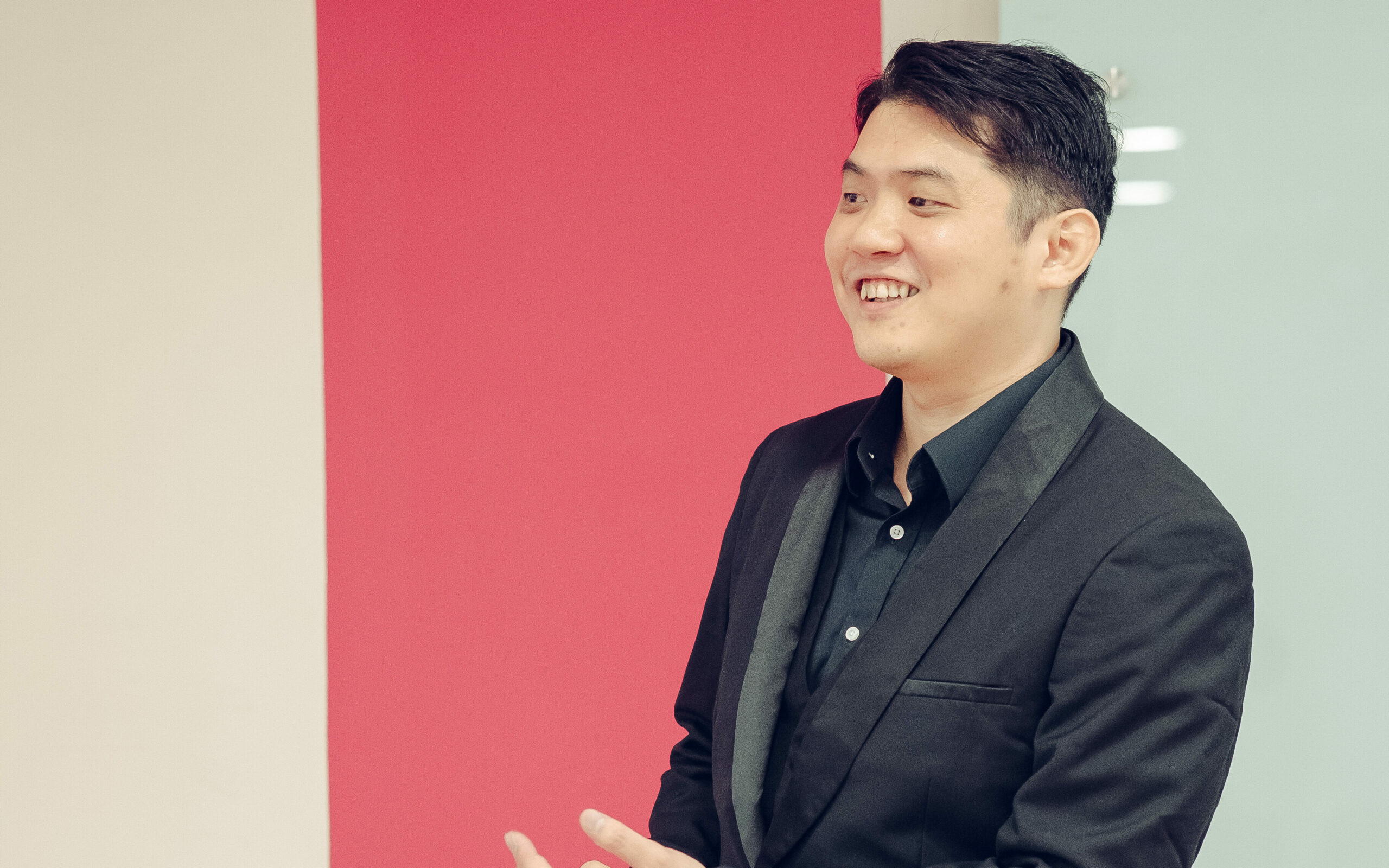At Marketing In Asia, we strive to dig deeper, go beyond the surface, and bring our readers exclusive insights from industry leaders. This time, we managed to delve into the digital transformation journey of Finworld, a forward-thinking company helmed by CEO Simon Liau. Here’s what we found out about how they’re revolutionizing their human resources function by integrating automation, AI, machine learning, and more into their processes.
Influencing Employee Experience through HR Automation and Technology
HR automation at Finworld is more than just a technological novelty; it has significantly enhanced the overall employee experience by streamlining administrative tasks, such as leave management, payroll processing, and empowering employees with self-service capabilities.

Technology-enabled self-service platforms empower employees to access and update their personal information, request time off, view pay statements, and access relevant HR policies and resources. This autonomy can enhance employee engagement and satisfaction by providing quick and convenient access to necessary information.
Simon Liau, CEO Finworld
The company also implements various programs to nurture talent and foster engagement, encompassing learning opportunities, recognition and rewards, performance feedback, and wellness initiatives. These strategically placed initiatives are a testament to Finworld’s commitment to the professional growth and well-being of its employees.
HR Technology in Performance Improvement and Development
By incorporating HR technology platforms, Finworld identifies and addresses areas needing improvement in employee performance and development.
Simon elaborates, “Performance analytics, learning management systems, personal development plans, succession planning and skills assessments and gap analysis are all supported by our HR tech platform, enabling us to ensure our employees have the necessary support for their professional growth.”
Integration of AI, Machine Learning, and Data Analytics
The integration of AI, machine learning, and data analytics into HR processes at Finworld is no short of revolutionary. These advanced technologies have enabled the organization to make more informed, strategic decisions in several key areas of HR – talent acquisition, retention, and development.
Talent Acquisition: Automating the Hiring Process
In talent acquisition, AI has helped automate the resume screening process. AI-powered algorithms sift through numerous resumes and applications to quickly identify qualified candidates based on predefined criteria. This not only saves time but significantly enhances the efficiency of the initial screening process.
Moreover, machine learning comes into play in predictive hiring. By analyzing historical hiring data, these algorithms can identify patterns and factors that contribute to successful hires. This provides the organization with data-driven predictions about candidate suitability and informs decisions during the hiring process.
Technology-enabled self-service platforms empower employees to access and update their personal information, request time off, view pay statements, and access relevant HR policies and resources. This autonomy can enhance employee engagement and satisfaction by providing quick and convenient access to necessary information.
Simon Liau
Retention and Employee Engagement: Spotting Patterns and Predicting Outcomes
AI and data analytics have significantly impacted retention strategies and employee engagement efforts at Finworld. The company uses predictive attrition analysis to spot employees at risk of attrition. It analyzes various data points, including employee demographics, performance, engagement surveys, and feedback, to develop predictive models. As a result, the organization can proactively address potential issues and implement retention strategies.
Another game-changing application of AI is in sentiment analysis. AI algorithms analyze employee feedback from diverse sources such as surveys, social media, or communication platforms to gauge overall sentiment. This critical insight allows the company to identify areas needing improvement, enhancing employee engagement.
Performance and Development: Personalized Learning and Skill Gap Analysis
In terms of performance and development, AI and machine learning are at the forefront. AI algorithms, for instance, provide personalized learning recommendations by analyzing individual employee data such as performance metrics, skills assessments, and career goals. This personalization enables Finworld to tailor its training and development programs to individual needs, fostering continuous growth.
Machine learning comes in handy for skill gap analysis as well. By comparing employee skills data to the organization’s current and future needs, machine learning algorithms identify potential skill gaps. This allows the organization to plan targeted training and development initiatives, helping bridge these gaps and cultivate a capable workforce.
Workforce Planning: Predicting the Future
AI and data analytics have a significant role in workforce planning too. By analyzing historical data, market trends, and other relevant factors, Finworld can forecast future talent demand. This insight allows the organization to anticipate skill shortages or surpluses and make informed decisions regarding recruitment strategies or internal mobility programs.
Diversity and Inclusion: Ensuring Fair Practices
Lastly, the integration of AI has been instrumental in promoting diversity and inclusion at Finworld. AI algorithms analyze patterns and historical data to detect biases in hiring, performance evaluations, and other HR processes. This allows the organization to identify and mitigate biases, ensuring a fair and inclusive workplace.
Enhancing Data Privacy and Security with Automated HR Systems
Protecting sensitive employee information is paramount to Finworld. Simon Liau highlighted how the company leverages data encryption (to ensure data is converted into an unreadable format, which can only be decrypted using a specific key); robust access controls (using role-based access controls (RBAC) and two-factor authentication), regular data backups, and vendor due diligence to enhance their data privacy and security measures. Also, ongoing monitoring, auditing, and employee awareness programs ensure compliance with privacy regulations.
Impact of HR Automation on HR Professionals
Finworld is not just revolutionizing their HR processes; they’re also reshaping the roles of their HR professionals.
By leveraging HR analytics, fostering collaboration, and focusing on continuous improvement, the company empowers its HR professionals to take on more strategic, value-added responsibilities.
Simon
Championing a Cybersecurity-first Approach
HR professionals at Finworld work closely with the IT department to develop and implement cybersecurity training programs. Simon stresses, “These programs educate employees about various cyber threats and the importance of following security best practices. They also foster a culture of vigilance and prompt reporting of security incidents.”
Staying at the Forefront of HR Automation
Finworld is not a company to rest on its laurels. Simon Liau shared the organization’s future plans for staying at the forefront of HR automation, which includes continual evaluation of HR processes and staying updated with emerging technologies. He affirms, “By staying updated, we can identify opportunities to adopt new technologies that can enhance HR operations and improve the employee experience.”
Also read: Veteran Strategist Oddie Takes the Helm as PRecious Communications’ Indonesian Market Lead
Simon Liau’s insights offer a fascinating glimpse into how Finworld is leveraging HR automation to revolutionize its HR landscape. It’s not just about enhancing HR operations; it’s about creating a more fulfilling and engaging experience for their employees. If you’re interested in transforming your HR processes, Finworld’s innovative approach is an excellent starting point.












